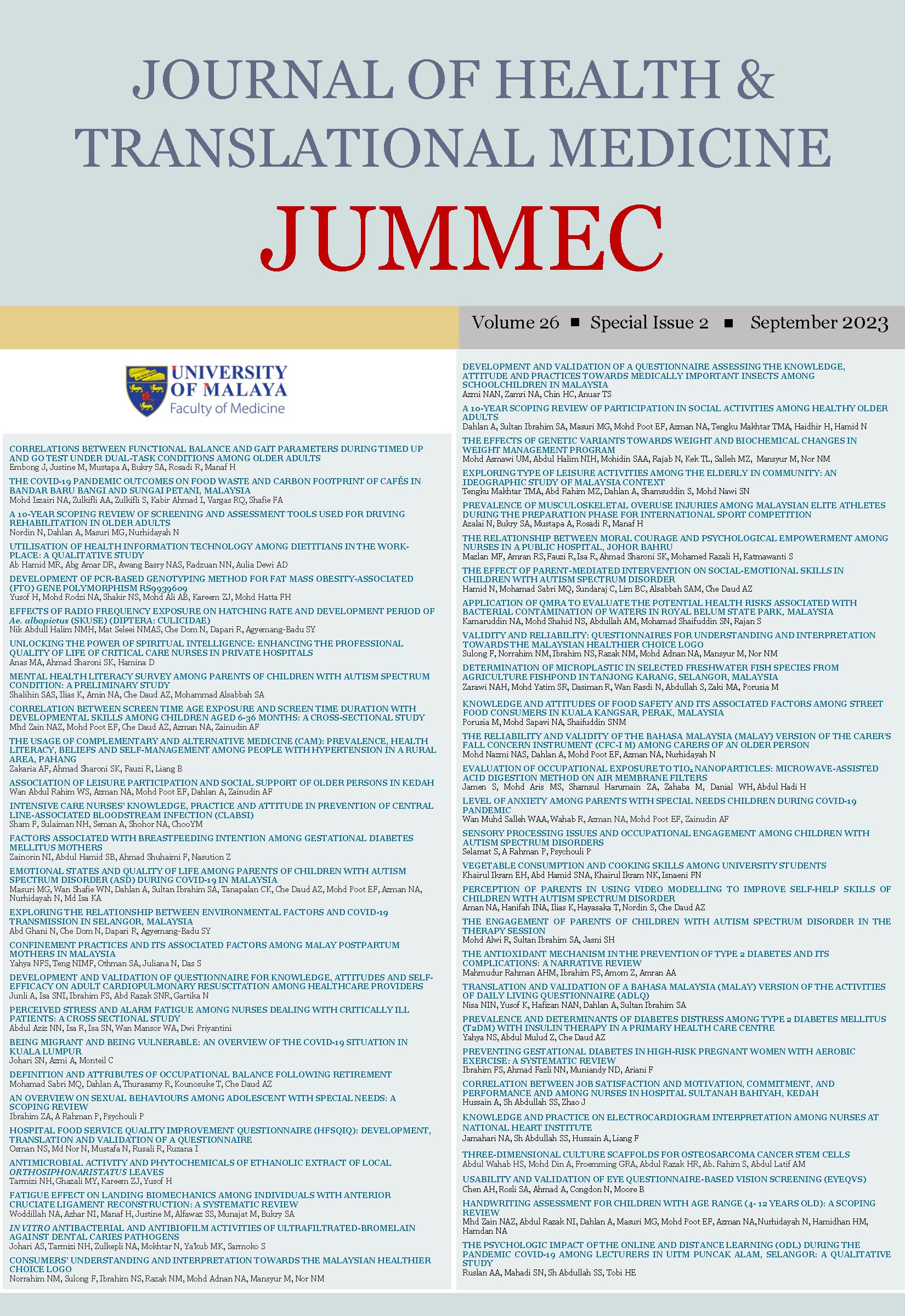PERCEPTION OF PARENTS IN USING VIDEO MODELLING TO IMPROVE SELF-HELP SKILLS OF CHILDREN WITH AUTISM SPECTRUM DISORDER
Received 2023-07-07; Accepted 2023-09-27; Published 2023-09-28
DOI:
https://doi.org/10.22452/jummec.sp2023no2.43Keywords:
Autism Spectrum Disorder, Perception, Self-Help Skills, Video Modelling, Parent-Mediated InterventionAbstract
Over the past 20 years, there has been a noticeable increase in the prevalence of autism spectrum disorder (ASD) because of the change in diagnostic criteria, policy and increased awareness. One of the issues that children with ASD have in their life is self-help skills. This triggers the need to adopt a proper technique to intervene and teach new skills to children with ASD. Video modelling (VM) is one of the intervention methods that can be done with children with ASD as one of parent-mediated interventions (PMI). The objective of this study was to investigate the self-help skills problems among children with ASD and parents’ perception of using VM to improve self-help skills in children with ASD. Associations of the child’s and parent’s demographic characteristics with self-help skills problems and perception of parents in using VM were also examined. A cross-sectional study using purposive sampling that included 262 parents of children with ASD was employed. Questionnaires that include demographic characteristics, Vineland Adaptive Behaviour Scale Third Edition (VABS-3) and Video Modelling Perceptions Scale (VMPS) were completed by the participants. There were significant differences between the age of children with ASD (p < 0.001) with self-help skills problems. Educational level (p < 0.001), occupation sector (p < 0.001) and household income status (p < 0.001) were associated with parents’ perceived interest and accessibility in using VM. In conclusion, parents showed positive responses about their perceived interest and accessibility in using VM to improve self-help skills in children with ASD.
Downloads
Downloads
Published
Issue
Section
License
All authors agree that the article, if editorially accepted for publication, shall be licensed under the Creative Commons Attribution License 4.0 to allow others to freely access, copy and use research provided the author is correctly attributed, unless otherwise stated. All articles are available online without charge or other barriers to access. However, anyone wishing to reproduce large quantities of an article (250+) should inform the publisher. Any opinion expressed in the articles are those of the authors and do not reflect that of the University of Malaya, 50603 Kuala Lumpur, Malaysia.


